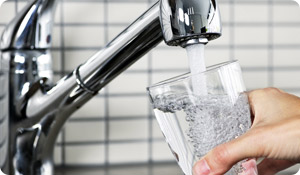
You'd think that water would be a safe bet for people with allergies, right? Yet for a very small group of people, this isn't the case. A rare allergy to water, called aquagenic urticaria, makes daily living extra challenging for them.
Swimming. Showering. Taking a bath. Crying. Sweating. Drinking. These are all things you probably take for granted. Yet if you suffer from a water allergy, exposure to any of these can put you in danger.
How a Water Allergy Occurs
Some people with an allergy to water find that only topical contact with the liquid sets their symptoms into motion, while others with this rare condition not only need to avoid all types of water from touching their skin, they're also unable to drink or eat anything with high water content. This means they can't head to the beach, clean themselves off, or even follow many popular recipes.
Symptoms of Aquagenic Urticaria
Regardless of the exact type of scenario that sparks a water allergy, many of the symptoms that result will be consistent. This can include hives, a rash, or blisters, and the skin discomfort is usually accompanied by severe itchiness that can linger for hours or even days. Over time, repeated exposure to water can have more serious consequences. In fact, in extreme cases, coming into contact with water can cause a life-threatening reaction.
Aquagenic Urticaria Triggers
If you believe you could have an allergy to water, it's important to pay attention to how your reaction occurs and what conditions you experience. You'll also want to see an allergist who can help you piece together the clues to confirm if a water allergy is to blame for your symptoms or if something else could be causing them.
Part of the process of identifying a water allergy will be ruling out other, more likely, triggers, such as scented bath, body, and cleaning products, and chemicals that can be added to water.
Avoiding the Risks
If you do have an allergy to water, you'll need to come up with a strategy to avoid situations that can put you at risk.
For instance, you may need to keep your efforts to bathe with water to a minimum and explore other cleaning methods, and you'll also need to forego certain foods and drinks that contain a lot of water. In extreme cases, it could be necessary to avoid saliva and tears, too.
Finally, talk to your doctor about the benefits of taking an antihistamine to try to head off a reaction. In some cases, this can be a helpful step in managing this unusual problem.
Sources:
"Allergic to Water." ABC News Medical Unit. ABC, 23 April 2009. Web. 11 May 2011.
Eugene W. Monroe M.D. "Urticaria." Current Problems in Dermatology, Volume 5; Issue 4. July-August 1993: 118-140. Web. 11 May 2011.
"Part II: Chronic Urticaria/Angioedema ." Annals of Allergy, Asthma and Immunology. Volume 85, Dec. 2000: pp. 532-544. Web. 11 May 2011.





